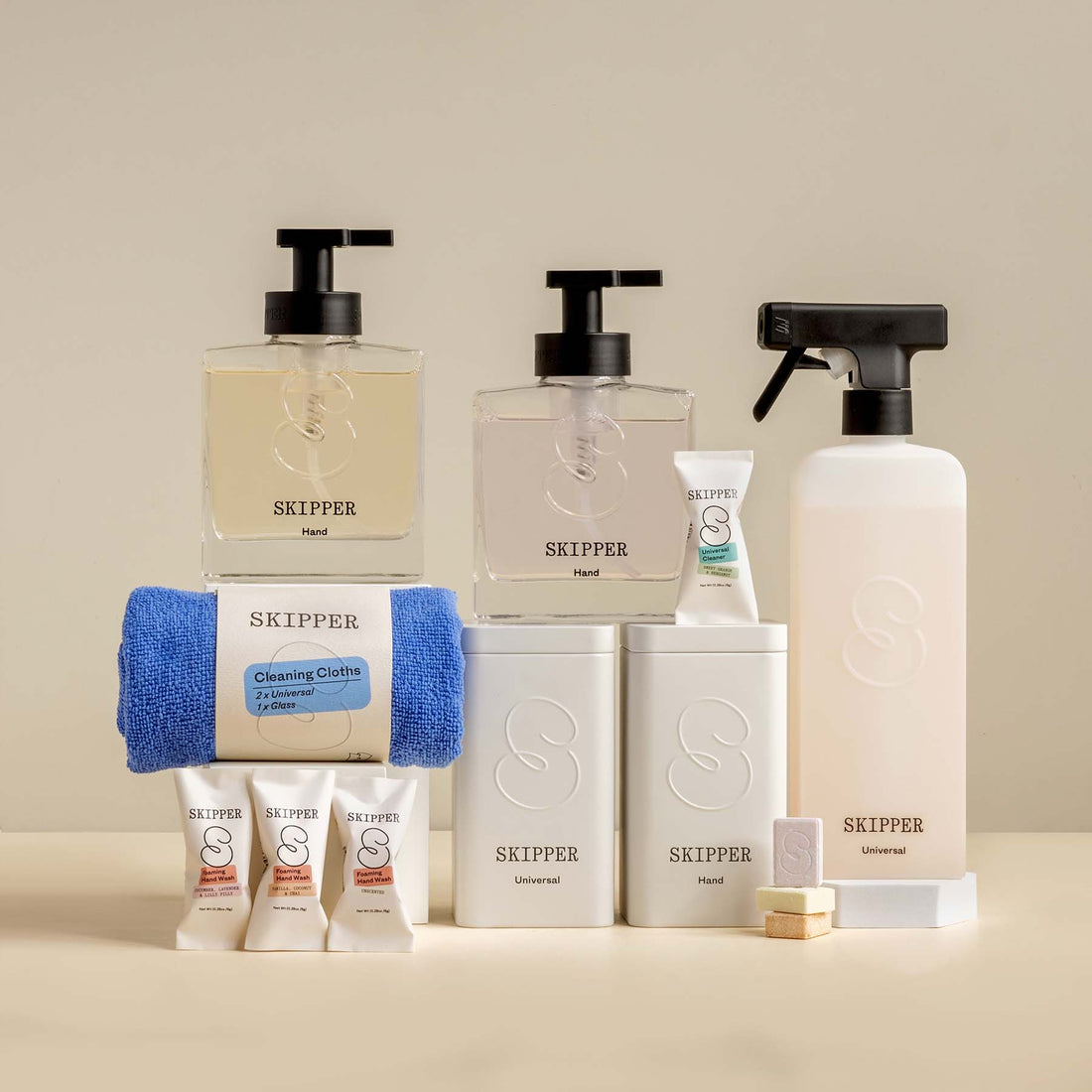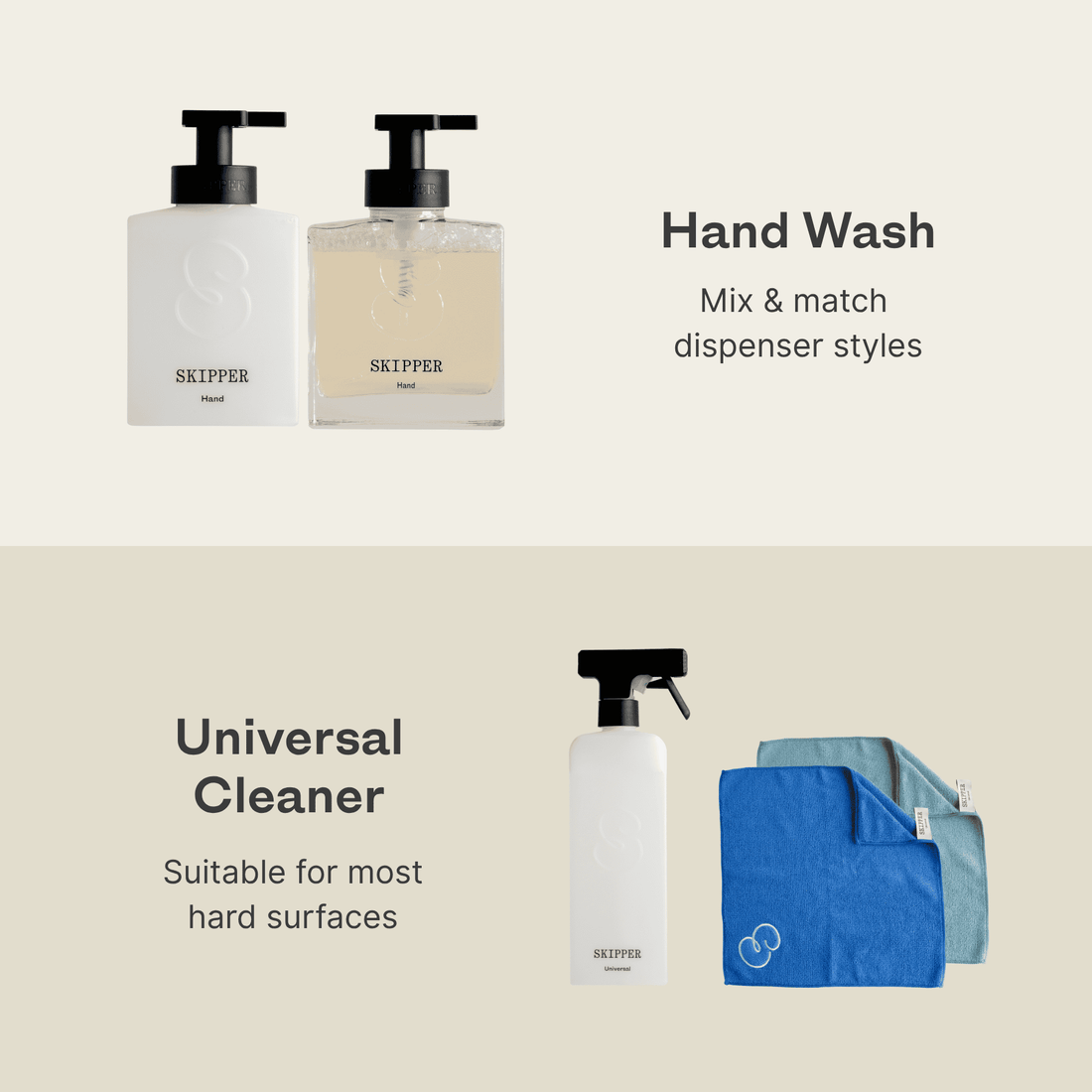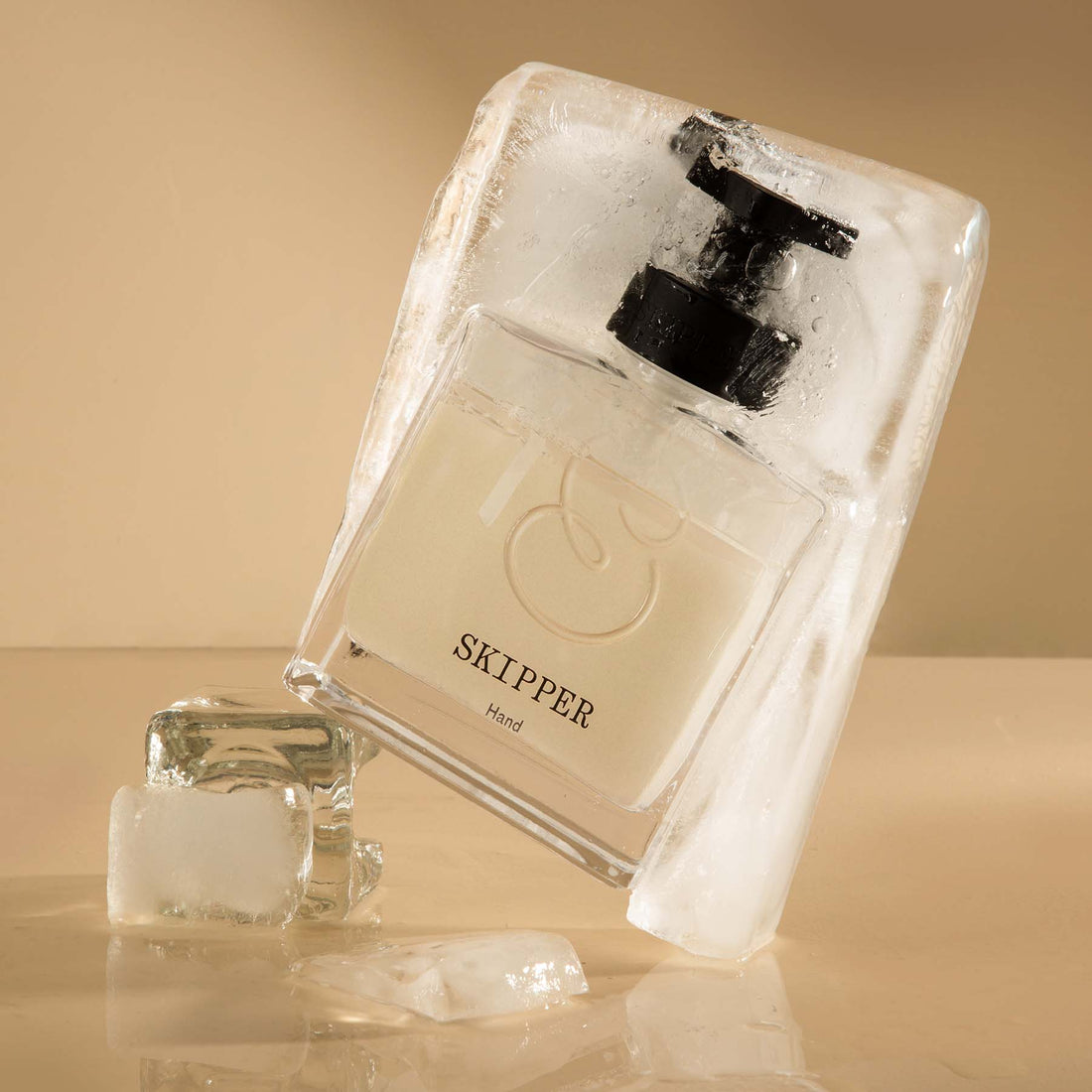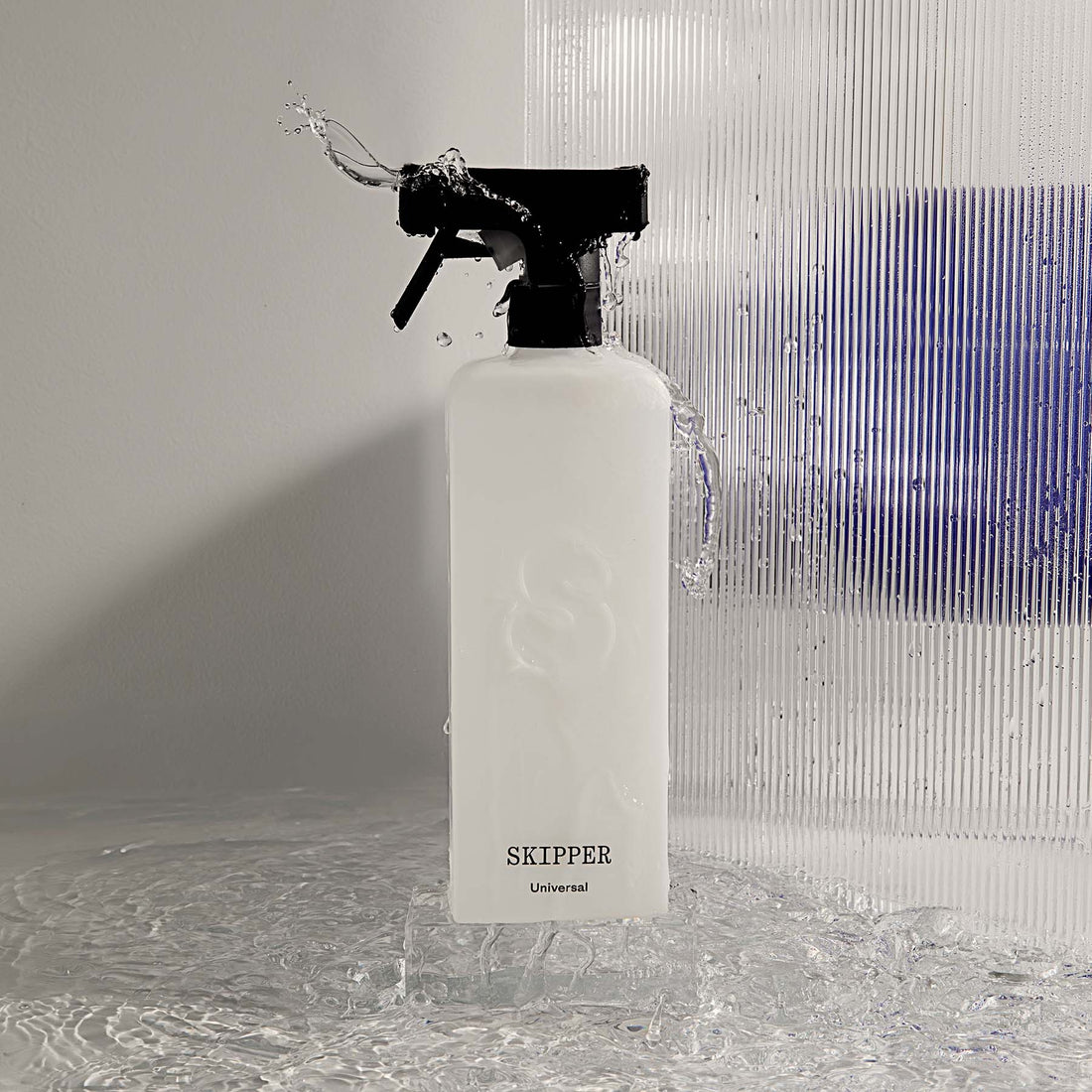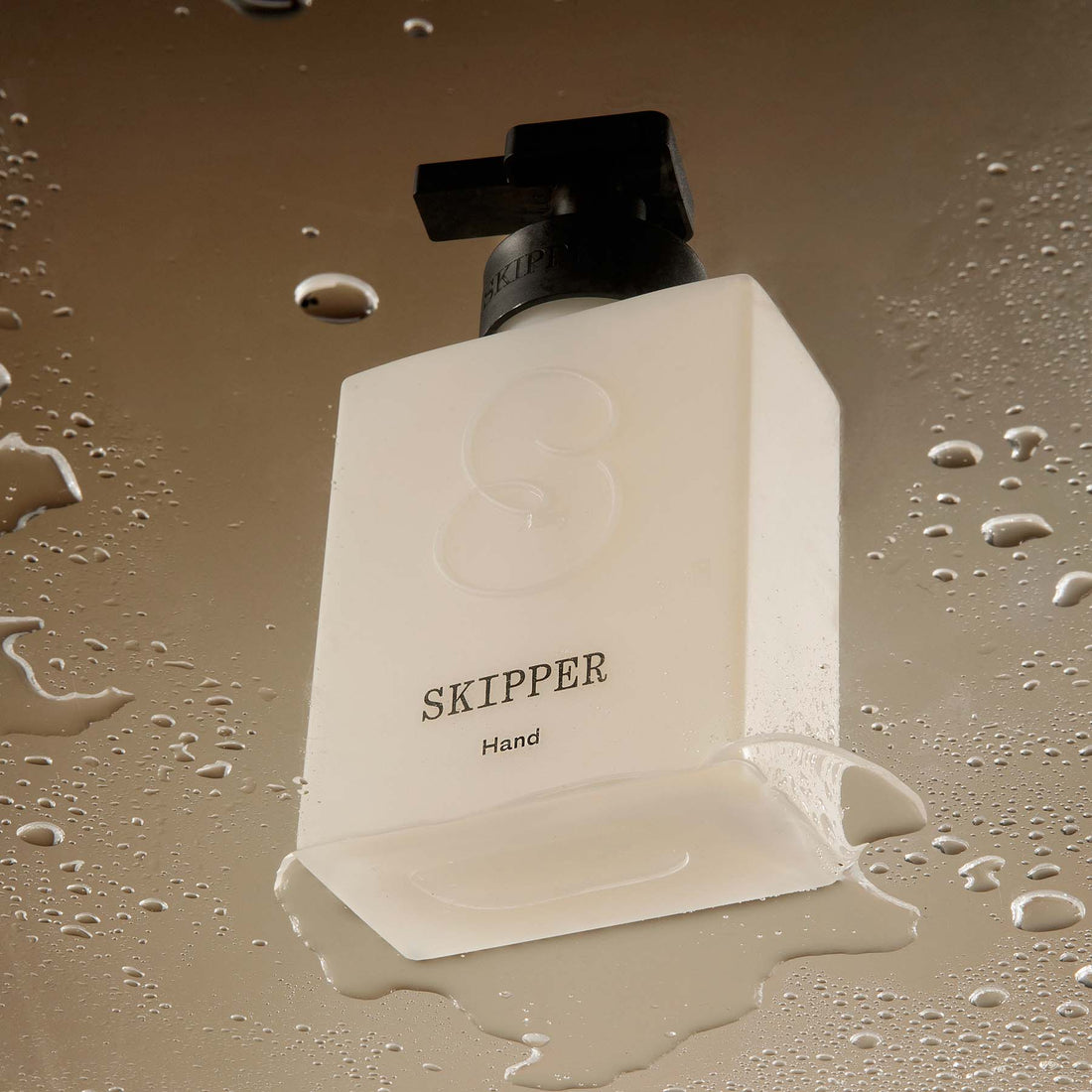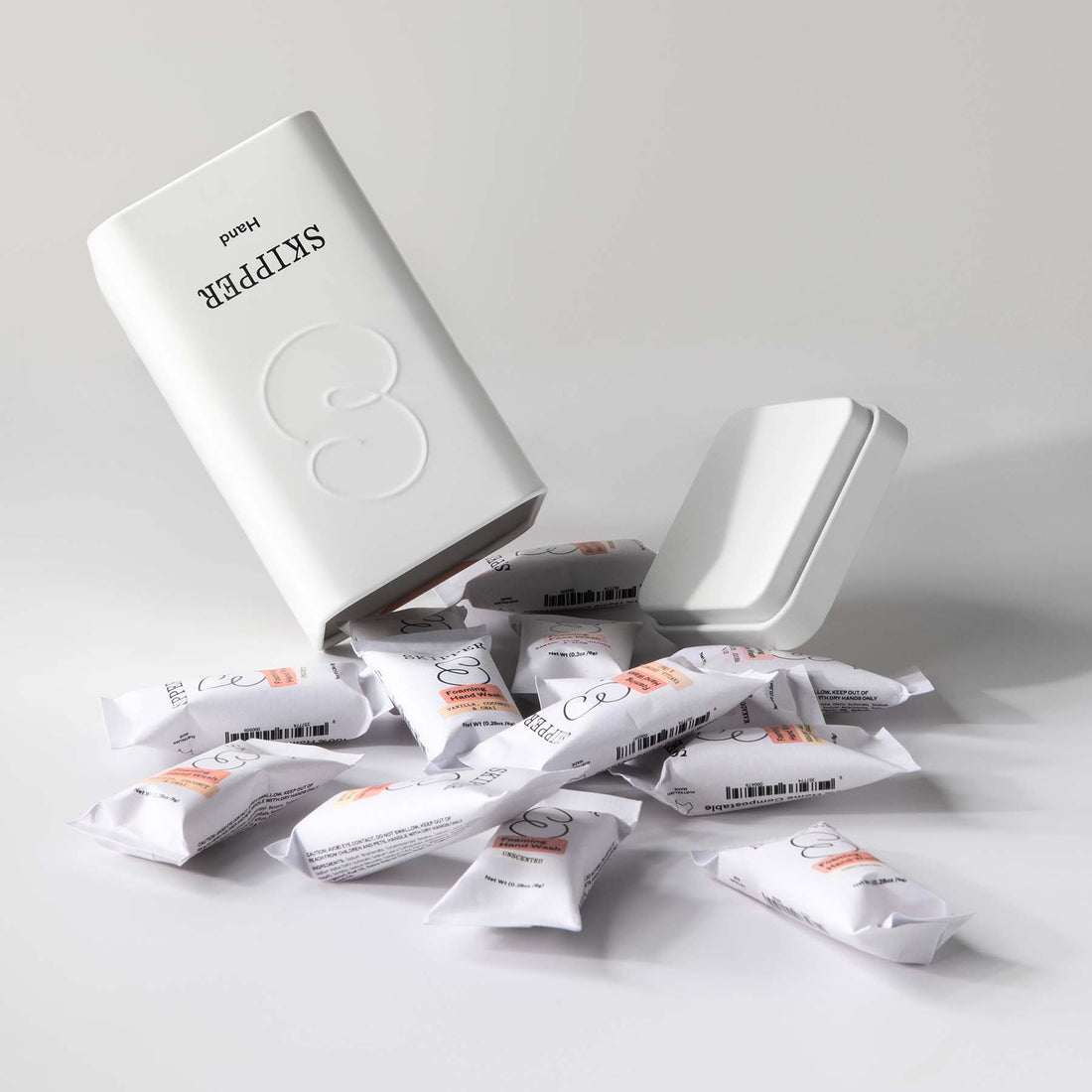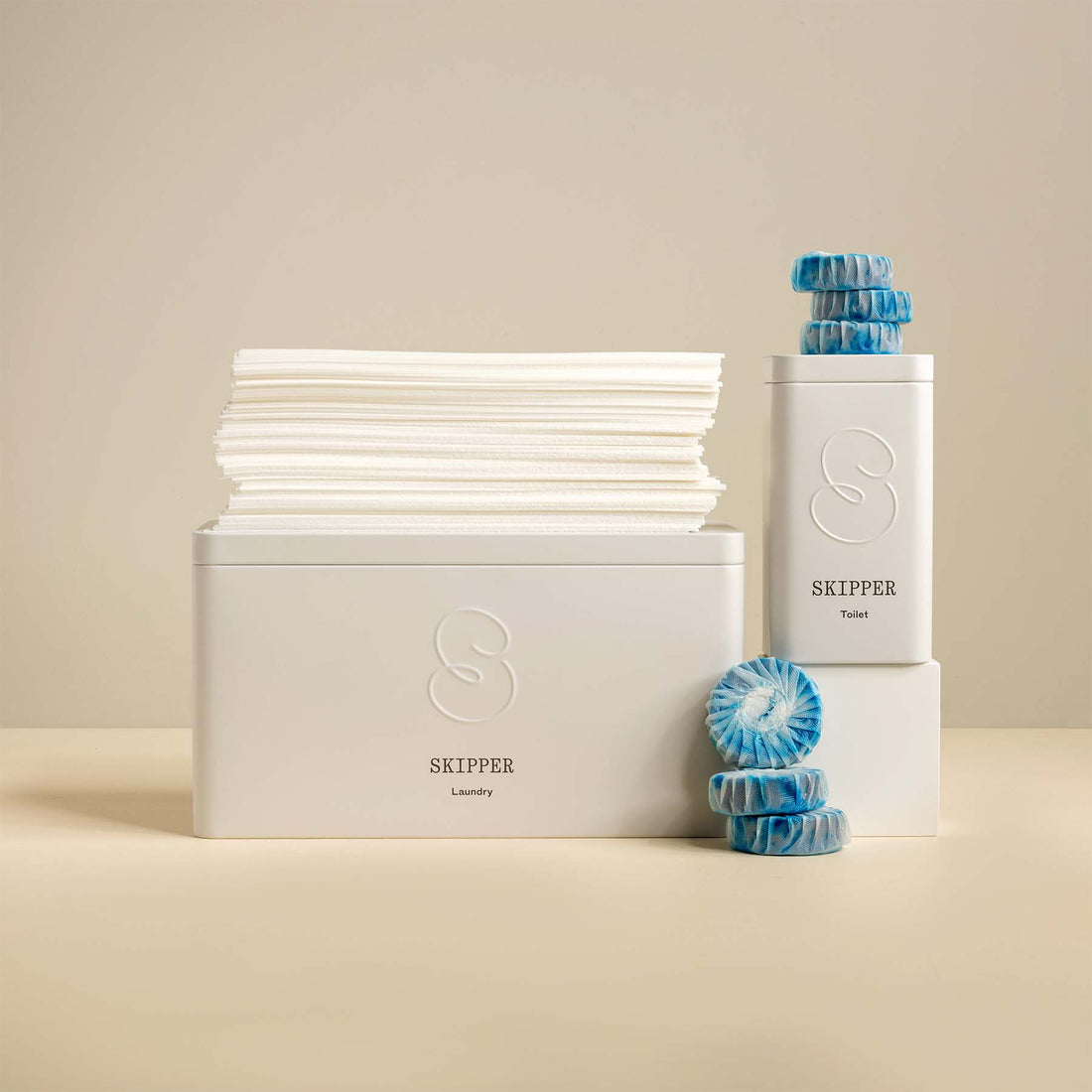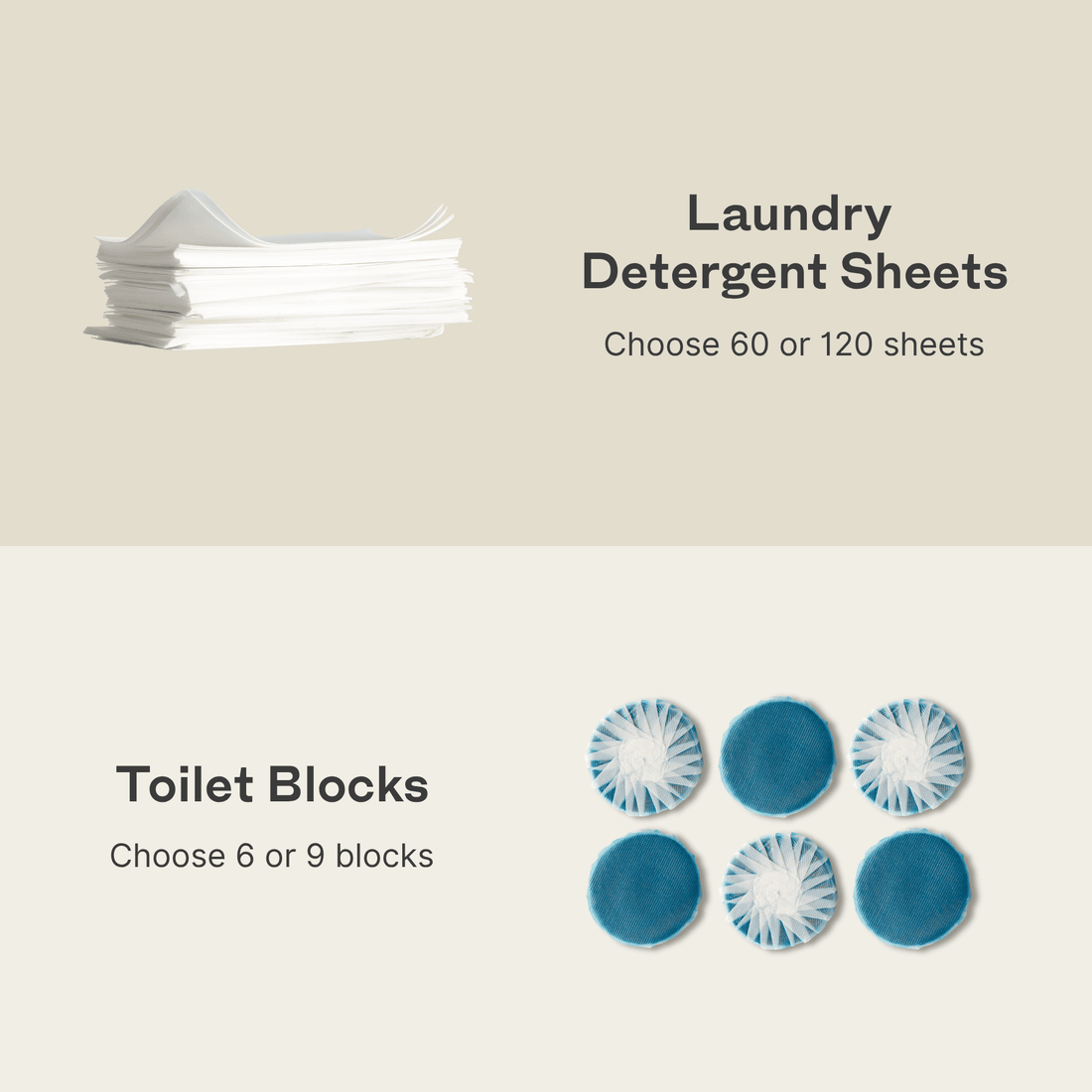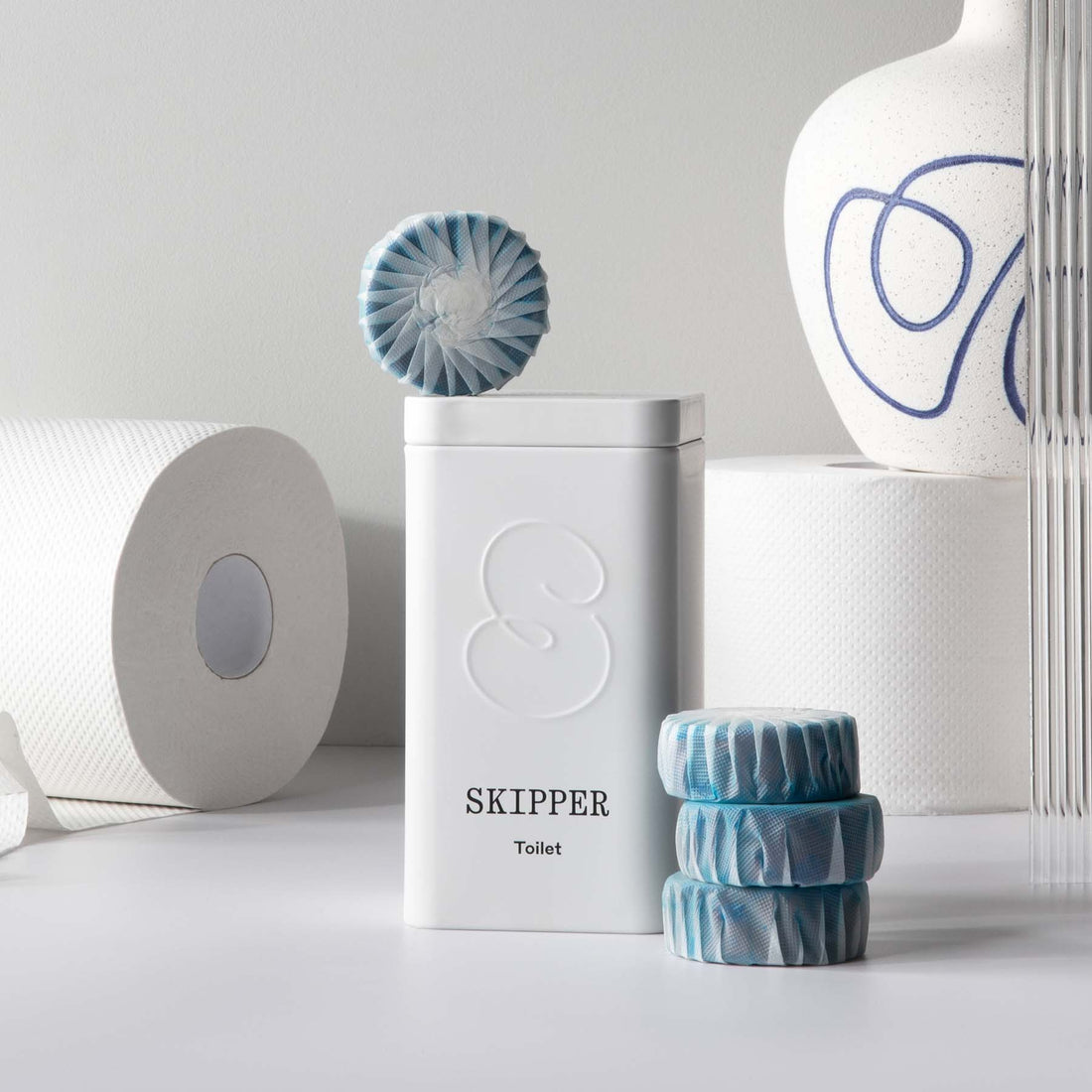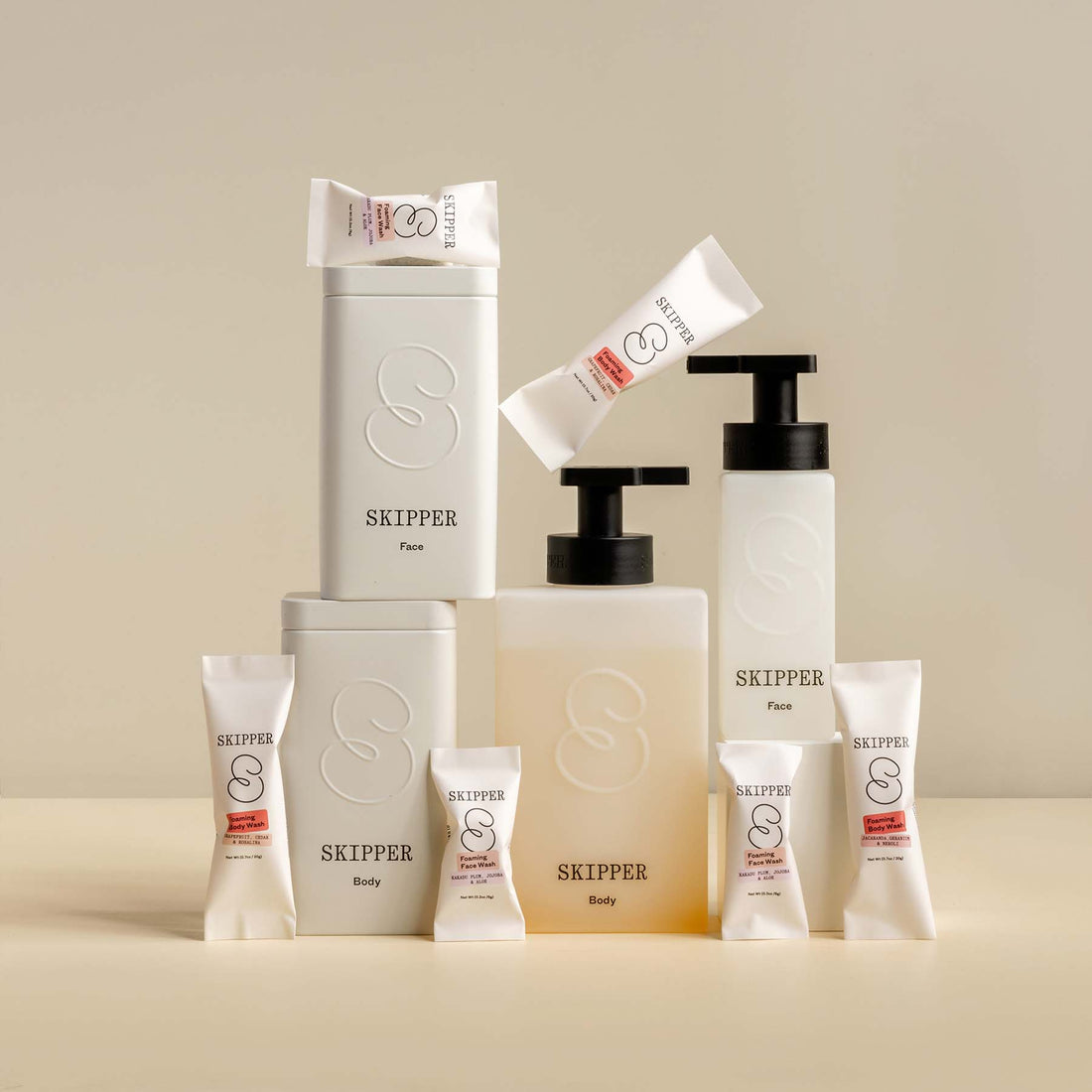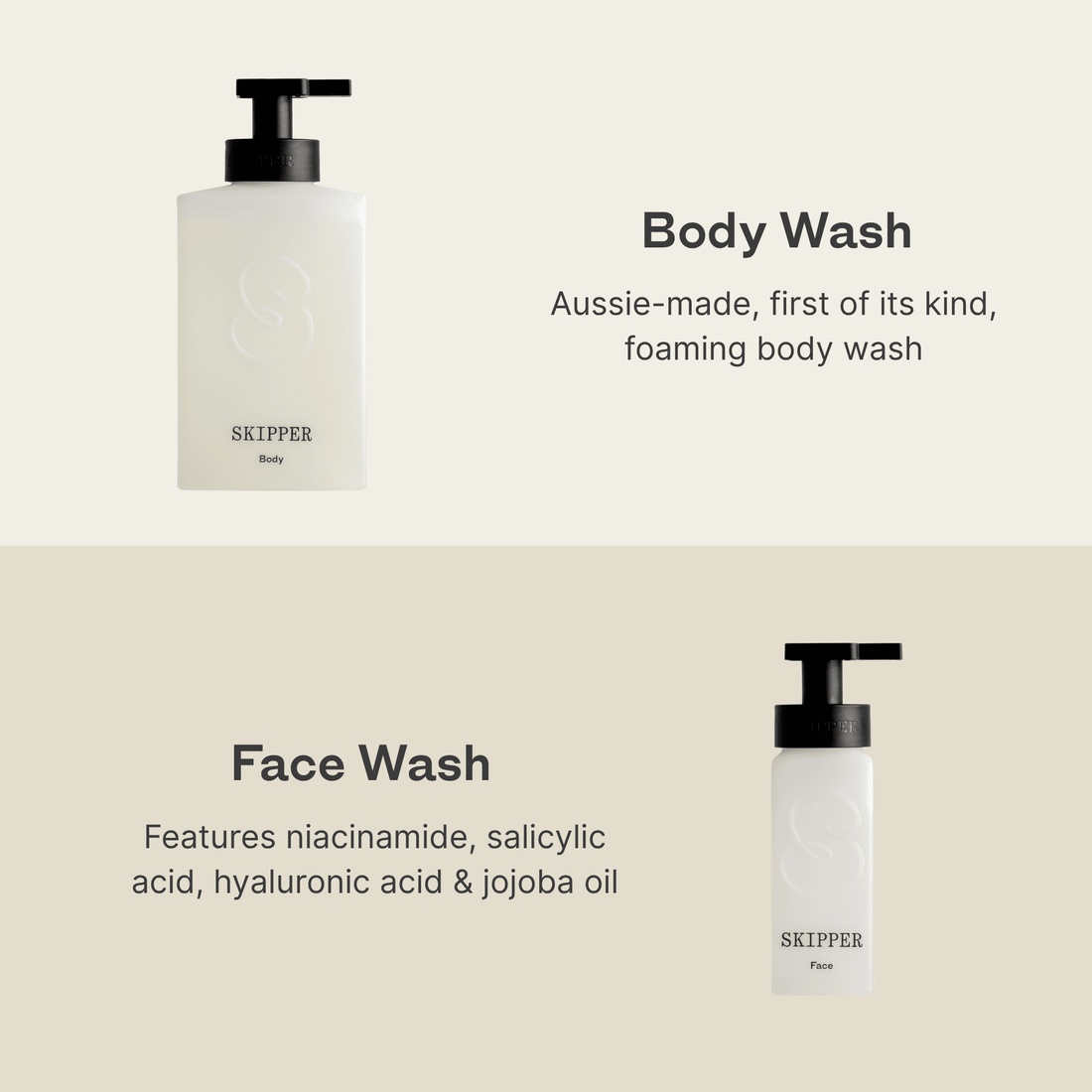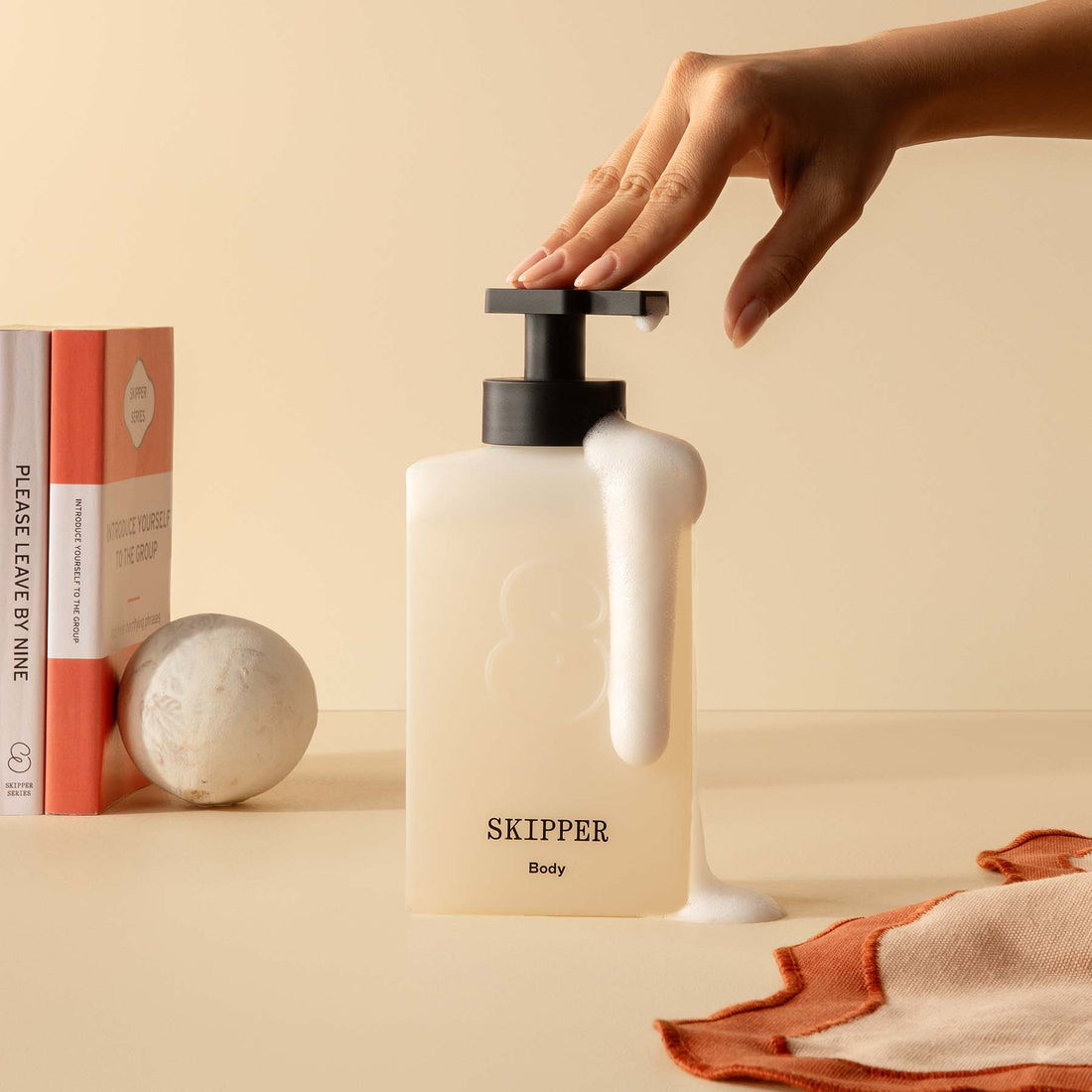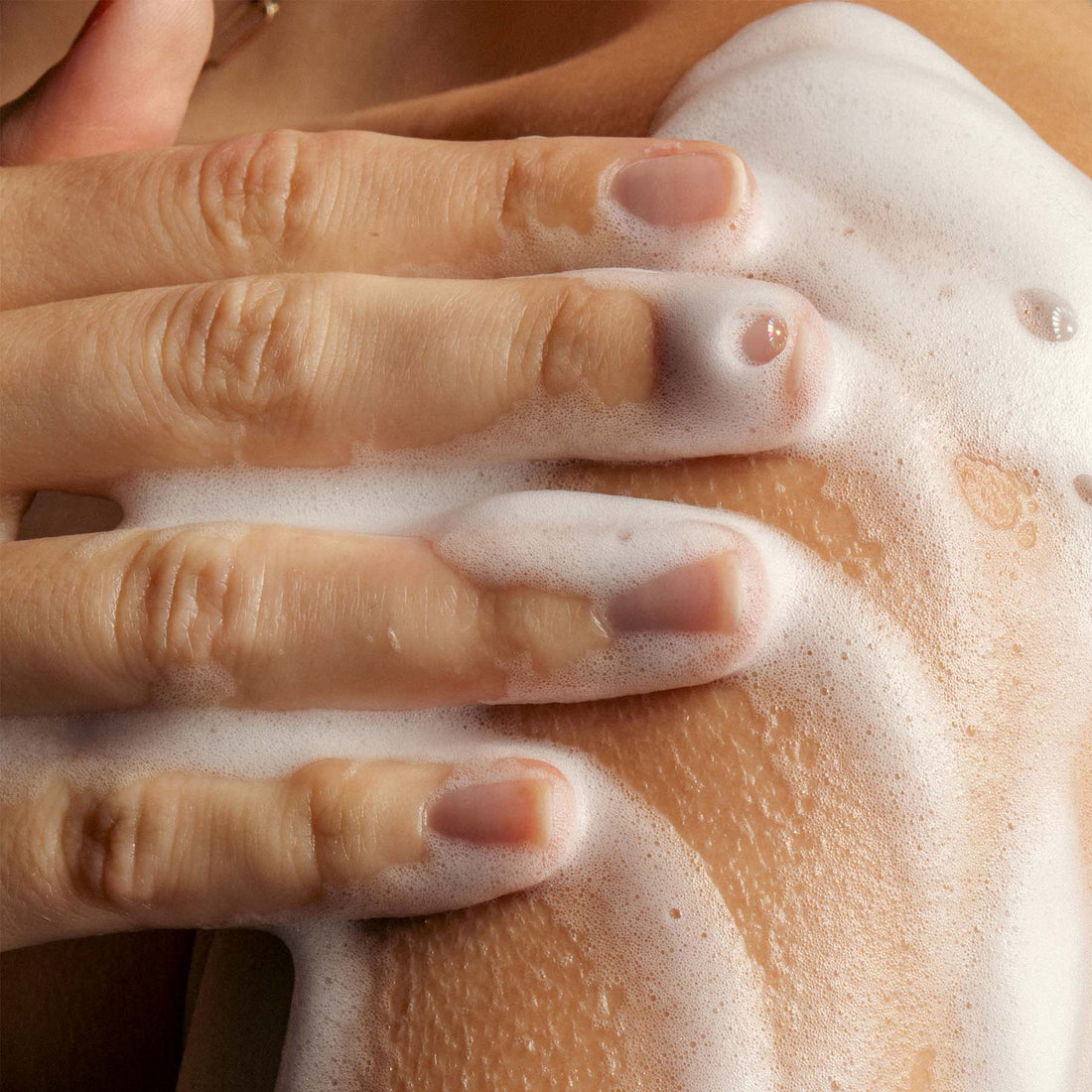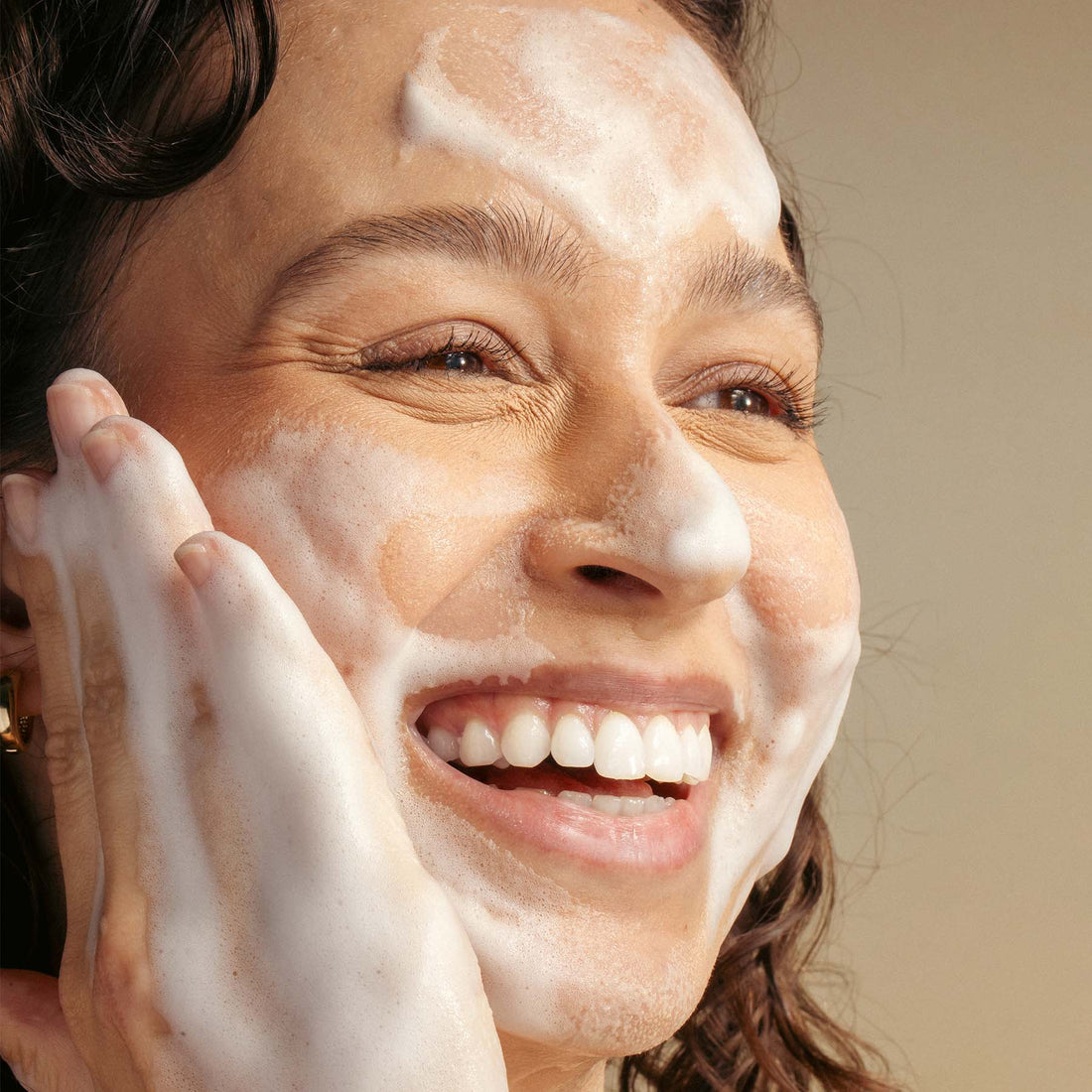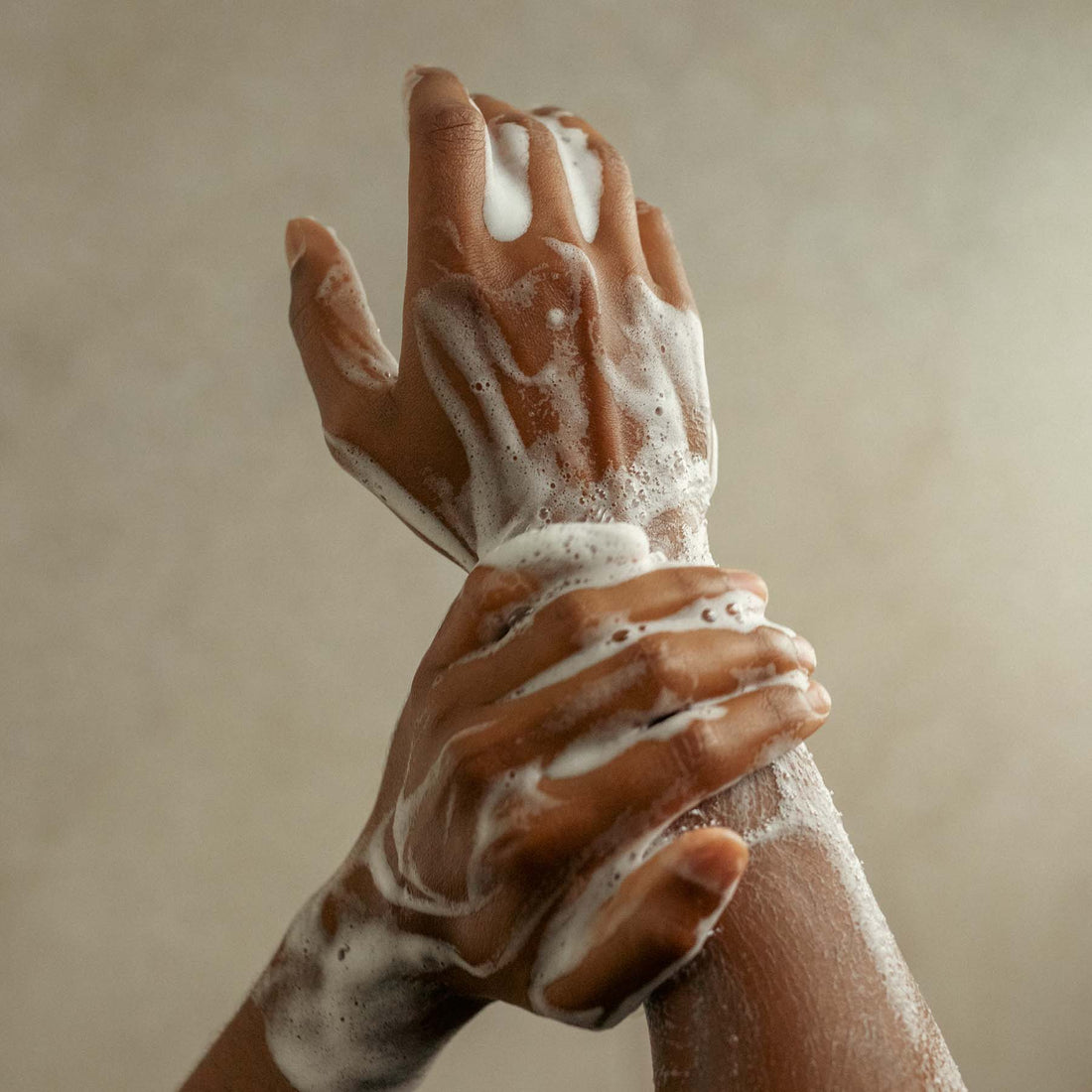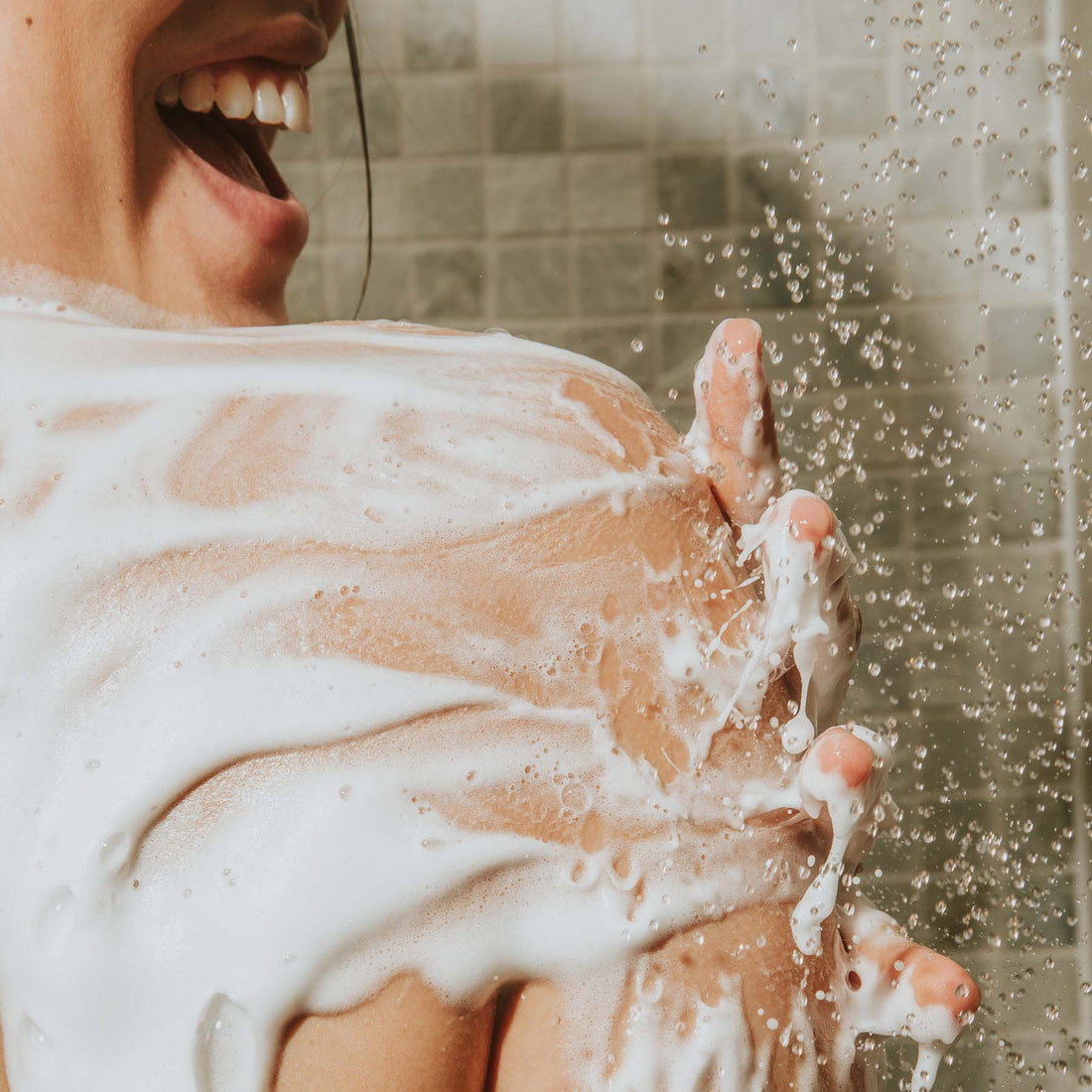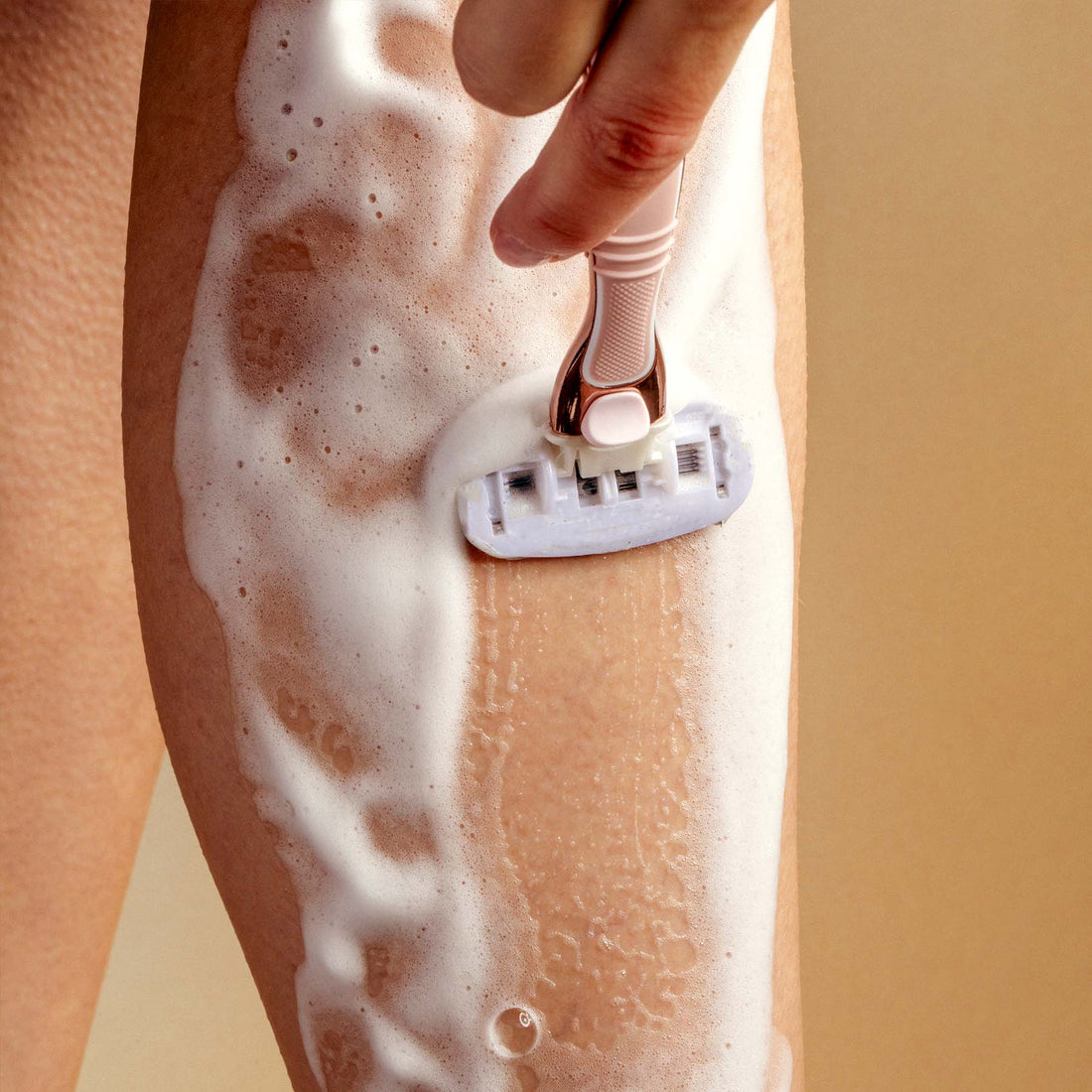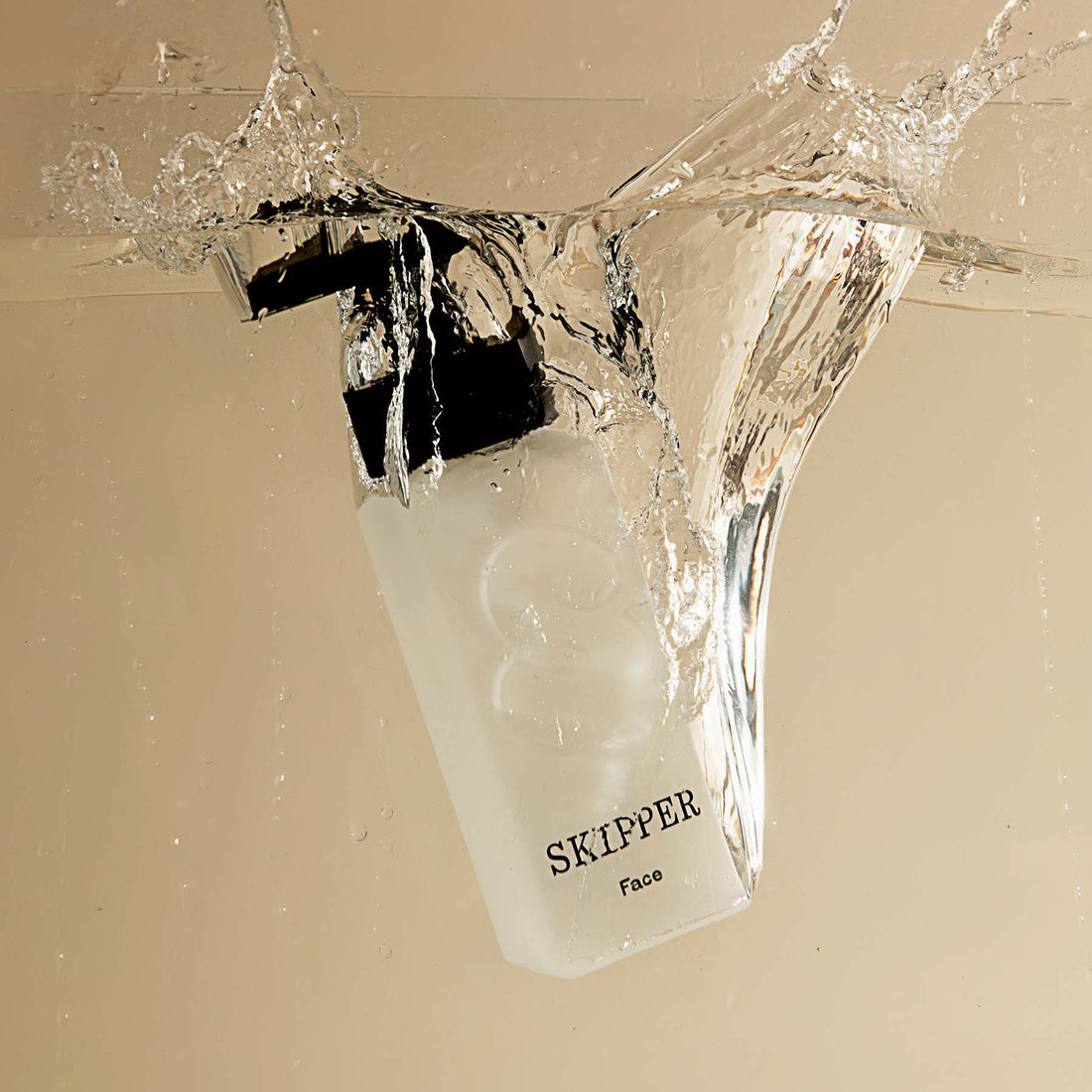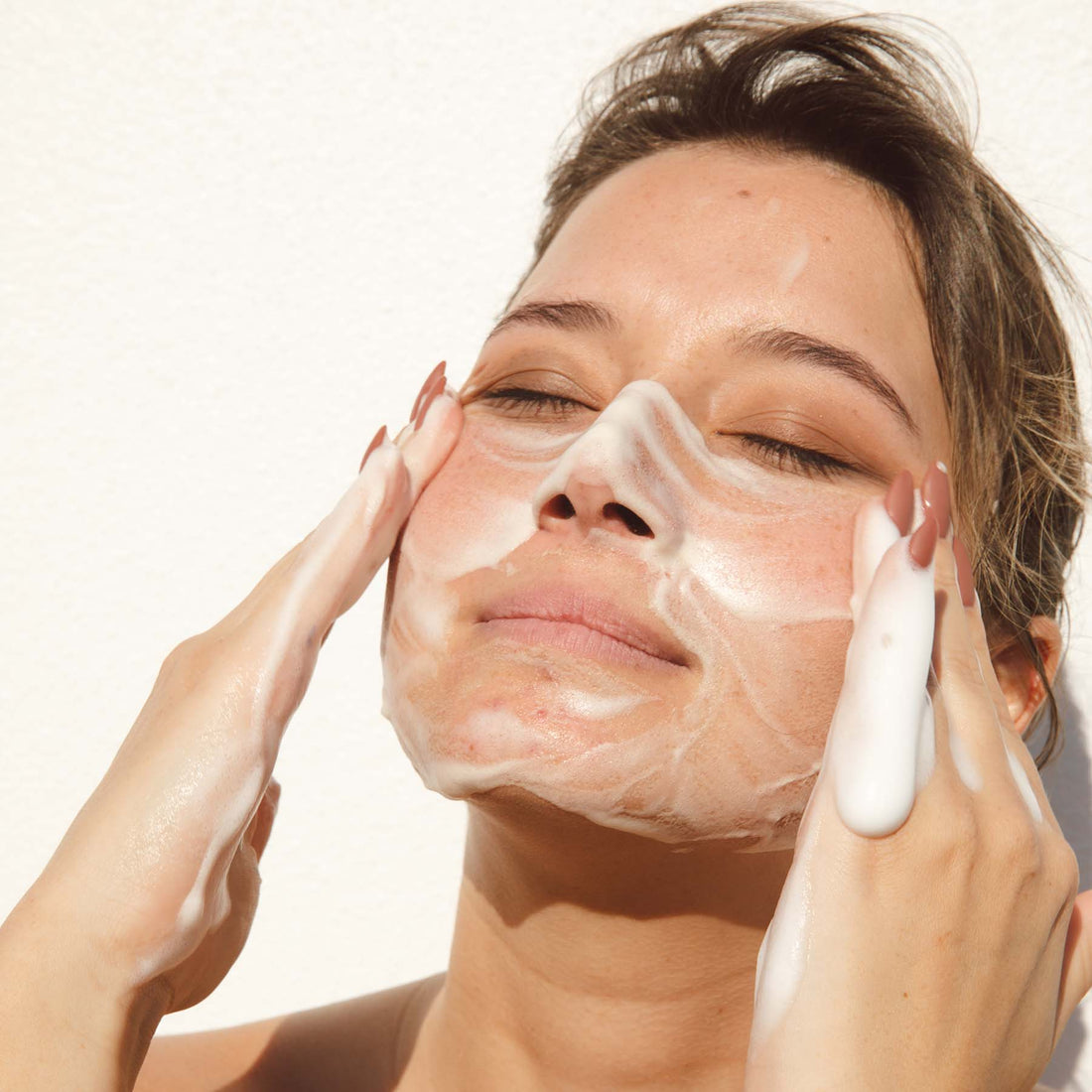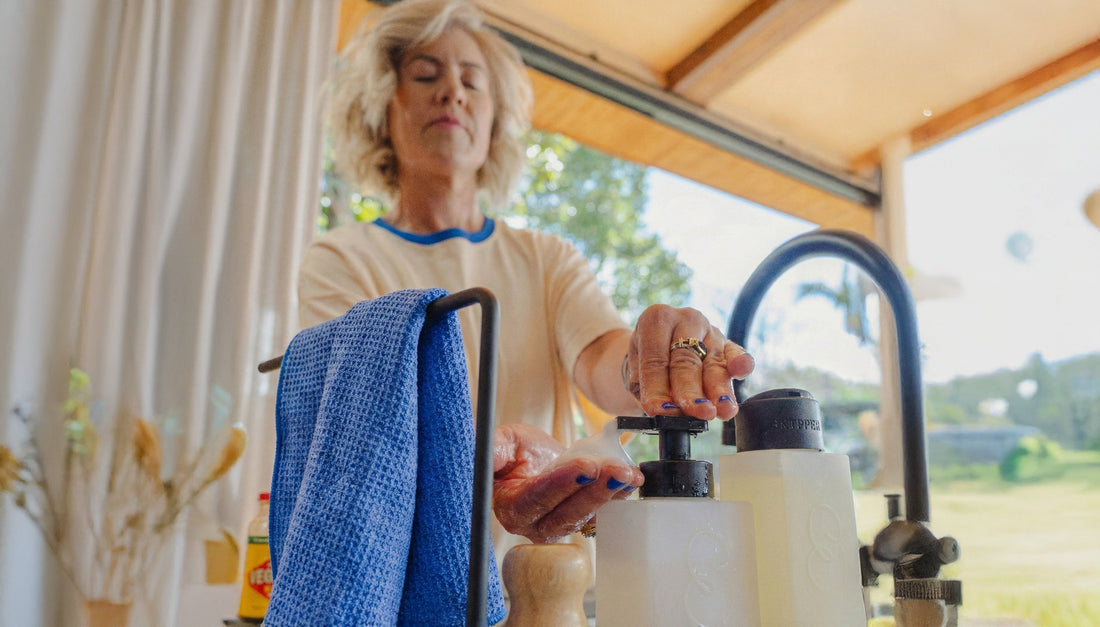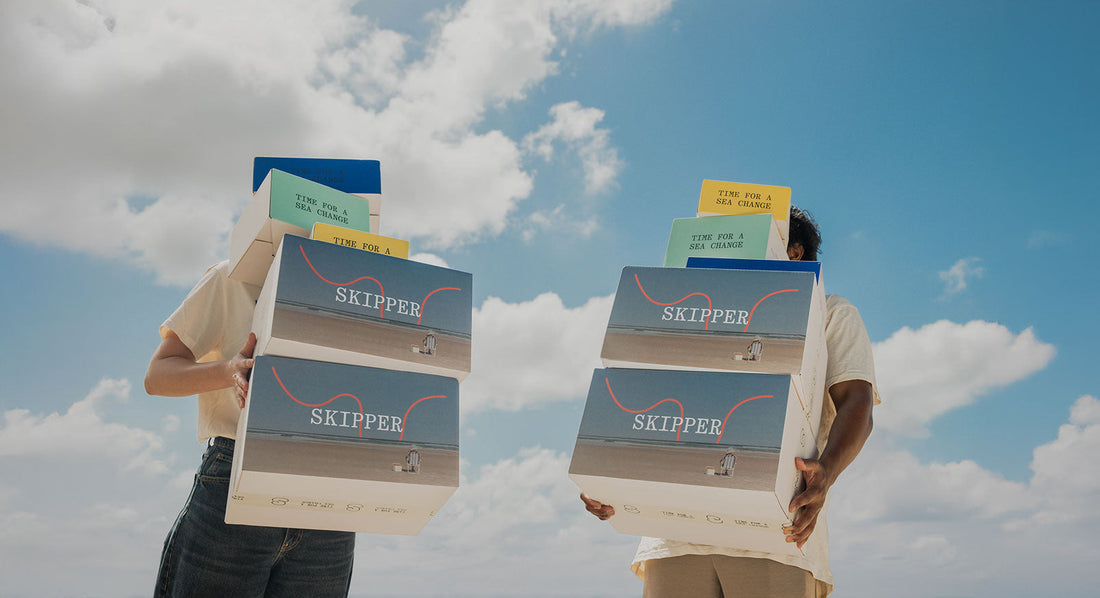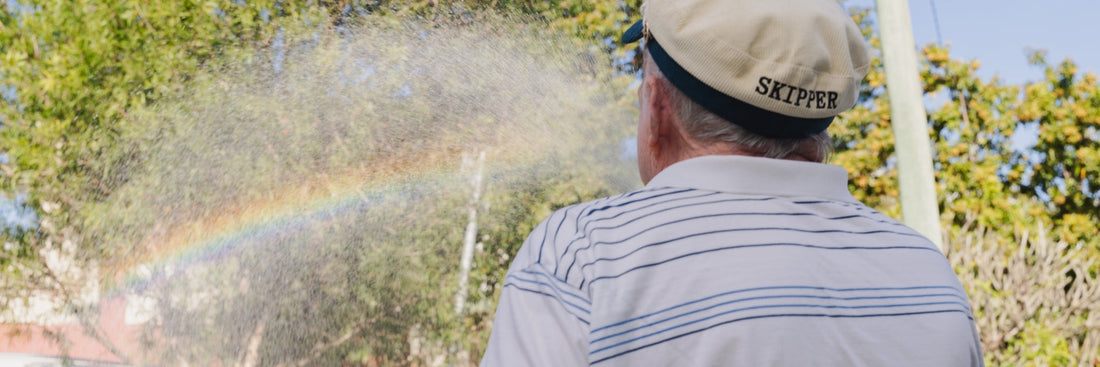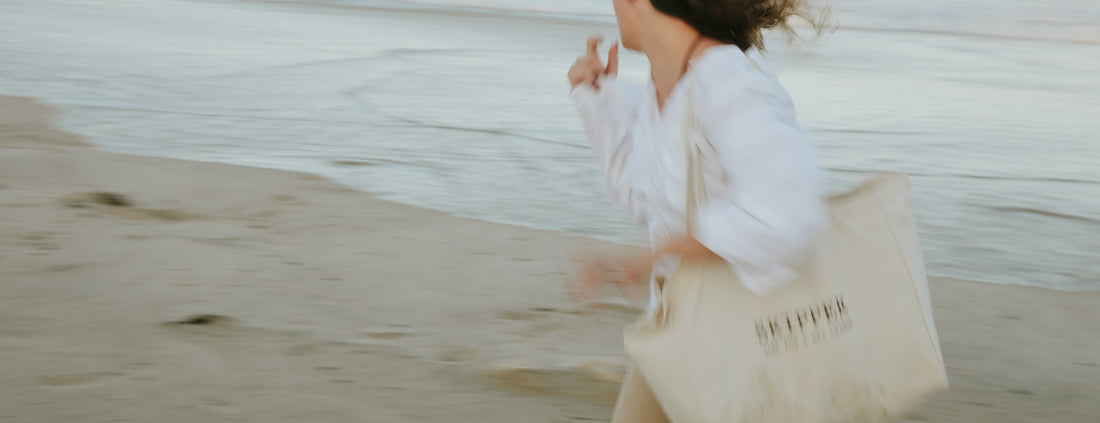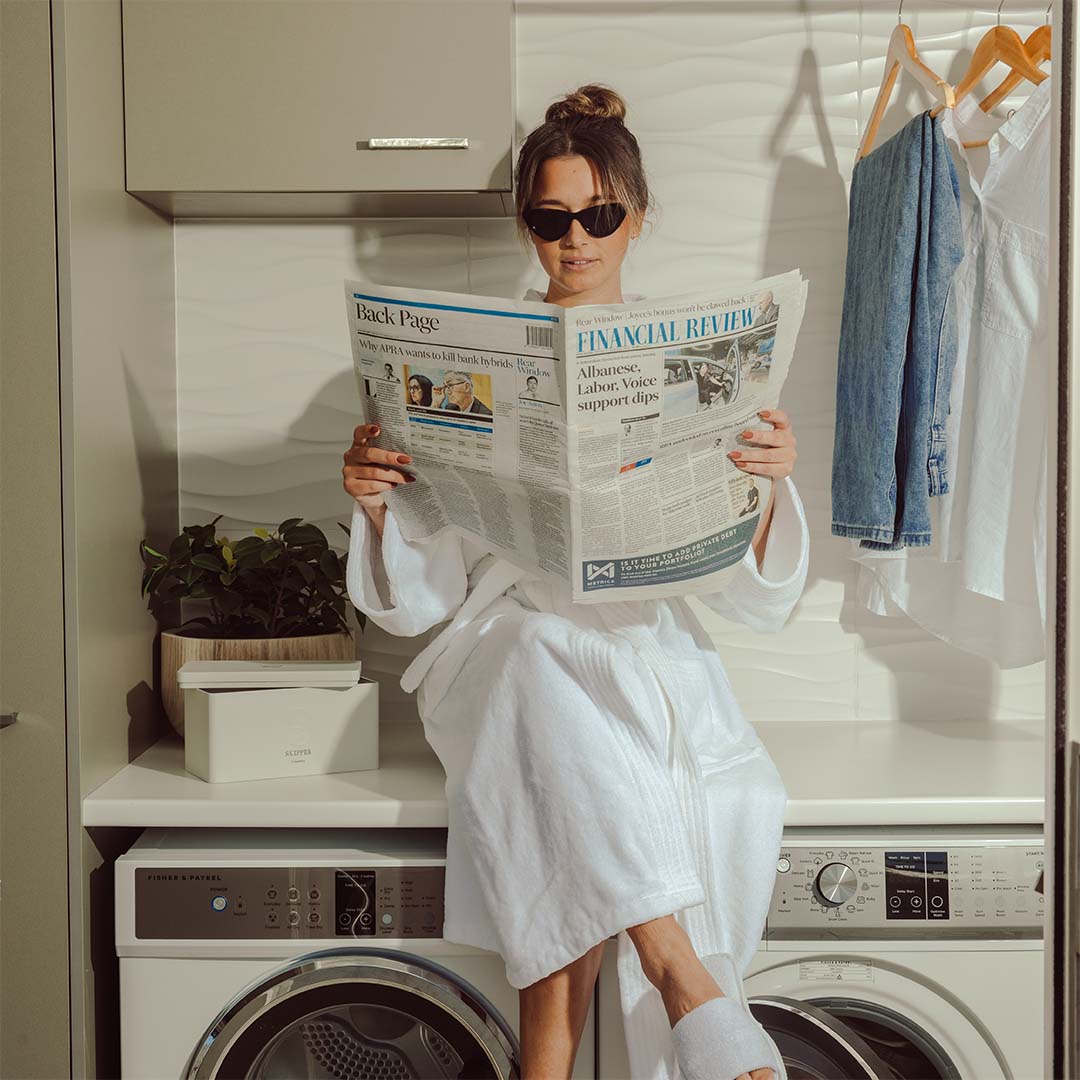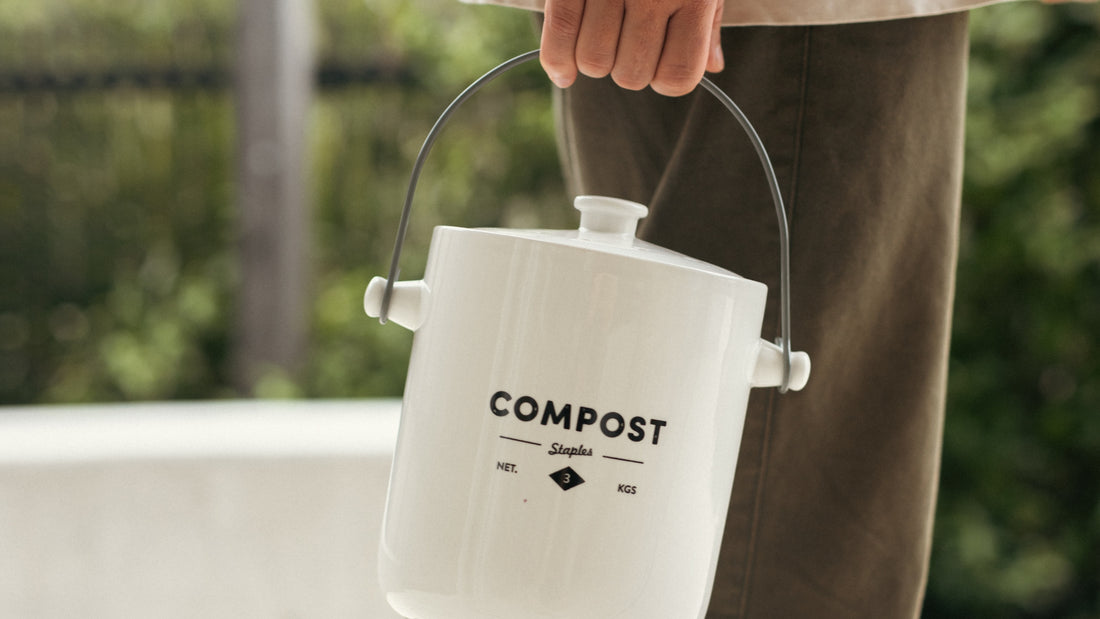This article contains our breakdown on common hand soap ingredients. To see the ingredients used in our Tirtyl Foaming Hand Soaps, click here.
When you take a peek at the ingredients list of our hand soap, it’s what isn’t on the list that makes it so interesting.
No parabens, no triclosan, no sulfates, no fragrance, no preservatives, no soap...NO SOAP? What?
With so many ingredients NOT in soap, it takes a chemistry major to understand the good, the bad and the ugly. As a company that prides itself on transparency, let’s have a look at what you should really avoid, what you should probably avoid and what’s just marketing BS.
Disclaimer. This is not medical advice. If you’ve had problems using soap products in the past, you know yourself best! You can see our full list of ingredients here.
Ingredient |
Our Judgement |
| Triclosan | INCONCLUSIVE, but easy to avoid |
| Parabens | SAFE, but you can find other preservatives |
| Water | SAFE, just don't pay for it! Use a Tirtyl Tab and tap water |
| Phthalates | AVOID, swathes of evidence against this |
| Sulfates | SAFE, but be wary if you have sensitive skin |
| Soap-free | SAFER in most cases, depending on the ingredients used |
| Fragrance | VERY SAFE, in most cases if washed off like soap |
Triclosan - INCONCLUSIVE, but easy to avoid by not using antibacterial soaps
Triclosan is used to kill bacteria. While it may be tempting to completely sterilise your hands every time you wash them, it’s not actually totally necessary. The process of washing your hands with foaming soap - even without the bacteria-killing ingredients - is more than enough for everyday people. Unless you’re about to perform surgery, the dirt-removing properties of regular soap are totally fine.
We’ve already written about why experts believe you should avoid antibacterial soaps. The United States Food & Drug Administration (FDA) banned Triclosan’s use in all antibacterial liquid soaps in 2016. However, it can still be found in various personal care products in Australia. The FDA’s decision was based on the inability of the industry to prove that it was safe.
While the jury is still out on Triclosan, you will steer clear of it so long as you avoid antibacterial soaps.
Parabens - SAFE, no conclusive evidence against them but there are other preservatives
Parabens function as a preservative for many personal care products. A 2004 study found traces of parabens in breast cancer tissue but there’s NO evidence that people who use paraben-containing products face an increased risk of cancer. The estrogenic effects of parabens are tiny in comparison to the hormonal effects of using birth control or those experienced during premenopause.
Given that there are safer alternative preservatives than parabens, there’s no need to risk it. To preserve our Skipper tabs, we use good-ol’ citric acid, which keeps them shelf-stable for at least 3 years. Once you put one of your tablets in the soap dispenser and mix them with water, you’ll generally use your full dispenser up in the space of 4-8 weeks (depending on how often you’re washing your hands and how many people are using it!). While water doesn’t come with any preservative action, it’s totally fine for the amount of time it takes for you to use it up.
Phthalates - AVOID
Phthalates are everywhere - from household cleaners to packaging and cosmetics. Of all the bad stuff we should try to avoid, phthalates appear to be at the top of the list, given the increasing amount of research being released each year. While it’s almost impossible to avoid them entirely until regulations prevent them from being used in so many products, avoiding using anything on your skin that contains them is a good start.
Phthalates are endocrine disruptors, which means they directly impact and interfere with our hormonal systems. They’ve been found to be particularly harmful to children, making them something that’s worth avoiding as much as possible. Asthma, breast cancer, neurodevelopmental issues, and fertility problems have all been linked to phthalates.
Government regulation in various jurisdictions is slowly phasing out phthalates. However, even though the label may say no phthalates, the chances are the ingredients in your products have passed through plastic tubes or glass containing phthalates. At Skipper, we performed a long-list of independent third-party tests, one of which showed no traces of phthalates in our Skipper tabs.
Water - SAFE of course, just don’t pay for it!
When formulating our innovative hand soap tablets, we were shocked to find traditional foaming hand soap contains approximately 95% water. Water is necessary in foaming hand soap but why ship it around the world when most of us have clean water from our taps at home. Not only does it contribute unnecessarily to freight emissions, the plastic packaging required to hold it contributes to the world’s addiction to single-use plastic. Our hand soap kit comes with bespoke glass bottles that you can refill forever.
You can safely stock up on your handwash tablets and keep them in the cupboard, ready to be used for years. The little bit of packaging they’re individually wrapped in is also compost-safe, making them low-waste and low-cost to transport! As a result, we’ll ship any refill-only orders for free, making it easy to get your hands clean without the water waste and plastic, all while saving money.
Sulfates - SAFE but be wary if you have sensitive skin
Sulfates are ubiquitous in soaps and detergents. They are used as “surfactants” - that is, they help lift grease and oils off your skin and leave your hands feeling clean. There are a number of formats of sulfates, with some being milder (and less foamy) than others. In foaming hand soaps, shampoo and toothpaste, sodium lauryl sulfate (SLS) is the most common choice, though you might also find sodium lauryl sulfate, which tends to make less fluffy foam. Sodium lauryl sulfate (often abbreviated to SLES) is usually used in products that are for more delicate skin - like facial cleansers or shampoos. SLS has been used since the 1930s and it’s accepted as a safe ingredient for cosmetic use in the E.U., by the United States’ FDA and the Australian Therapeutic Goods Association (TGA).
The reason why sulfates may receive a bad reputation is that in high concentrations, they can wash away too much oil and leave your hands feeling dry. There’s nothing worse than your skin feeling dry and crispy - keeping your hands clean should be easy to do however often you need to without compromising the health of your skin.
For those with sensitive skin, sulfates can cause itchiness. We use SLS in our foaming hand soap to create our amazing foam and clean the bacteria and dirt from your hands. However, our smart soaps are also highly moisturising, thanks to added glycerin. You can easily tell the difference in moisturisation between a Skipper soap and regular brands.
For people with known SLS irritations, we’d steer clear of all foaming hand soaps and hundreds of other products. For all others, our Skipper products use the smallest percentage of SLS while also providing a safe clean that feels great.
Soap-free - SAFER in most cases depending on the ingredients used
Walk down the soap aisle of the supermarket and chances are you’ll find some “soap-free” or “no soap” products in the soap section.
Without getting too science-y, soap is produced by combining an alkali with an oil/fat. In the past, these fats were typically animal fats but more recently, they have switched to palm oil. A soap-free product is technically classified as a detergent and does not use animal fats and is far less likely to contain palm oil. Another key difference between soaps and soap-free hand wash is the suitability for sensitive skin.
While soap-free might sound like a good option on paper (and it is), formulations with palm oil aren’t as sustainable as they might appear. While they’re technically vegan - in that they don’t use any animal products - palm oil isn’t always sustainably farmed. The farming of palm oil has significantly contributed to deforestation, including areas that are the natural habitat of orangutans.
Skipper tablets, perhaps surprisingly, are best classified as “soap-free”. Our R&D team tested a huge variety of formulations and found pure soap formulations triggered more reactions to sensitive skin, and left many hands feeling dry.
Fragrance - Very SAFE in most cases if washed off like soap
Remember phthalates, the group we told you to avoid? Yep! Turns out they are the reason some fragrances should be avoided. Phthalates are added to fragrances to help them smell strong for longer. This is especially true of products that use synthetic alternatives, which can be a good option to avoid animal products or plants that are listed as endangered due to overexploitation, but it doesn’t necessarily mean they’re good for you or your skin.
According to the American Academy of Dermatology, fragrances are considered the leading cause of allergic reactions on the skin. However, the leading cause of reactions is from products left on the skin like perfume, toners, serums and sunscreen. Soaps with fragrances are far less likely to cause a reaction because they are quickly washed away.
Some companies are marketing the use of “clean” fragrances. Unless you can see the ingredients list, there’s no easy way to tell exactly how safe the products you’re using are. Without any agreed definition or regulation, this is just another marketing gimmick. Even fragrance-free products generally contain some form of fragrance.
Skipper happily uses about 0.25% of phthalate-free fragrance in our soaps. This includes lavender oil and vanilla essence. If you’ve had issues using other foaming hand soaps, we would recommend choosing another product. For everyone else, you can look forward to sharing a wide array of safe fragrances for you in the future.
At Skipper, we work hard to make products that tick all the boxes. From using gentle ingredients that are better for your skin to making sure they don’t adversely impact the environment when they get washed down the drain. If you’re just starting to explore new alternatives, whether for environmental or health-related reasons, we also do our best to be as transparent as possible with everything we do. Explore the ingredients used in our Skipper Foaming hand soaps, as well as the rest of our body care and home cleaning products.

































